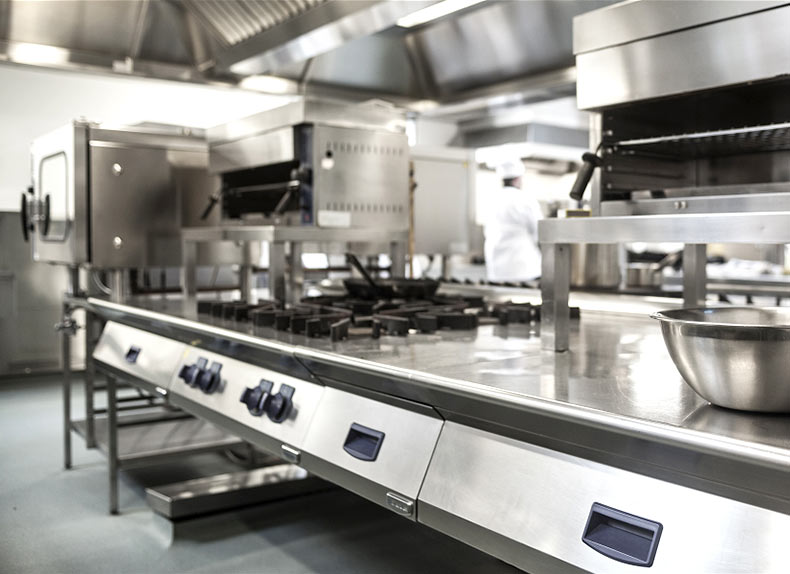In the food service industry, it’s extremely important to have all sides of the business run as efficiently as humanly possible and at the forefront of the industry in order to have a fighting chance. As we all know, in the food service industry, the list of competing business out there is never ending.
This analysis and further upgrade can range from low cost items such as updating your menus all the way up to acquiring specialized equipment.
Commercial kitchens are a large, long-term investment and there are many items to consider such as budget, schedule, current layout, equipment sourcing and warranties, price comparison, long term viability, planning and financing. so let’s break it down and look at each topic separately:
Budget.
Create a realistic budget that you can stick to, ensure that you have a separate account purely set aside for any maintenance costs. Your budget will give you an indication of how much money you will need to put into your account weekly or monthly.
Schedule.
Don’t upgrade your commercial kitchen equipment all at once if you can help it, this could ultimately mean that your kitchen will be due for maintenance on everything at the same time and become a costly burden. Ideally, you should be doing major upgrades during the slow season and work on the rest throughout the year.
Current Layout.
Look at your current kitchen layout. Is there anything you would change? Now is the perfect time to talk with a qualified Food and Beverage consultant to help build a better commercial kitchen workflow for your business. Their advice can save you a lot of headaches and even improve efficiency during peak hours.
Equipment Sourcing.
Equipment sourcing for your commercial kitchen is one of the most important parts of the entire project. When looking to buy equipment for your commercial kitchen consider the following:
- Will you buy all of your equipment from the same brand for product quality consistency?
- Will you choose quality over cost?
- Is the equipment easy to use?
- Can the equipment you’re looking to purchase improve efficiency in the kitchen?
- Consider building a business relationship with a single supplier for consistent quality, customer support and the possibility for discounts on regular purchases.
- Talking with industry experts on what equipment they prefer and why.
- Is the equipment environmentally friendly?
Price Comparison.
When looking into purchasing equipment make sure to compare models, brands and prices online before you even step foot into a store.
Now, the cheapest thing out there may not always be the best idea for your business, consider the track record of the product, look at the reviews online. What are other buyers saying about the product?
Doing your product research and knowing what your needs will help you answer any questions when you are ready to speak with a sales representative.
Running Costs.
It is well known that most energy costs are attributed to refrigeration equipment. To alleviate running costs, make sure the refrigerator is in a dry place, with plenty of ventilation, preferably away from sunlight, otherwise if the refrigerator operates in the sunlight or in humid conditions this will make the unit to work harder to maintain temperature which means higher energy costs for you.
Daily management also plays a big part in the running costs of your commercial refrigeration. Avoid multiple trips to the refrigerator, keeping the display lights off (as long as it doesn’t turn off the entire unit!) and keep your cooling unit stocked to approx. 75% capacity for better airflow.
Maintenance also helps with lower costs to make sure that seals, gaskets, hinges and thermal insulation are operating properly. Check for any gaps, leaks or cracks.
Regular operational maintenance should always be performed by an approved service technician to avoid any warranty issues in the future.
Equipment Warranties.
Warranty on your commercial equipment is crucial, it is very important to understand what is covered and what’s not.
Long-term Viability.
Don’t skimp when purchasing commercial kitchen equipment, remember that it’s a long term investment for your business and it’s going to be a key part of your kitchen for years to come. Asking critical questions on matters such as the product warranty could be the difference between investing in product A over product B.
Planning and Project Management.
The planning and project management of your kitchen upgrade should be a seamless process. From the contractor to the financing consultant and equipment supplier.
Financing.
Speak to a Financial expert when purchasing new or used equipment, don’t use all your own cash all at once, think of the long run and unexpected expenses you might not be prepared for and have a little extra so you can cover it. This will also better your cashflow.
